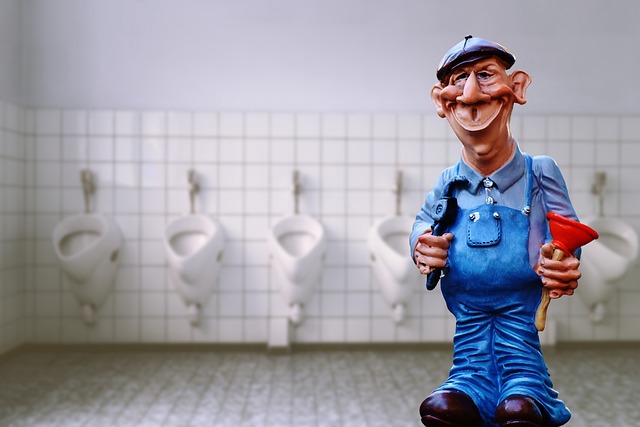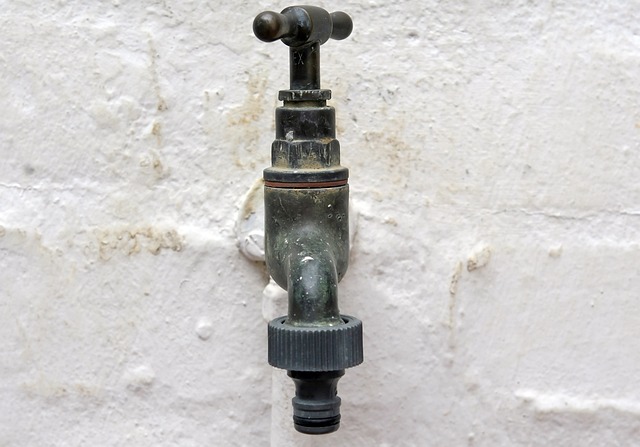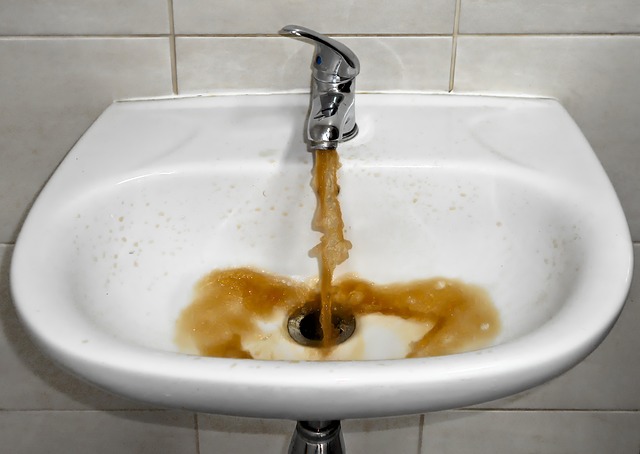Water quality issues, from harmful bacteria to chemicals like chlorine and lead, pose significant risks to health and plumbing systems in households. Plumbers play a crucial role in identifying these problems through inspections and recommending treatment solutions such as filters or softeners. Regular maintenance by licensed plumbers enhances resident health and extends plumbing longevity. Key factors for choosing water treatment systems include property size, water quality issues, energy efficiency, and budget. Proper installation, ongoing maintenance, backwashing filters, regenerating softeners, inspections, and immediate component replacement ensure optimal system performance and lifespan under the guidance of a professional plumber.
Looking for clean, safe water at home or work? Understanding your water quality issues is key. This guide delves into common problems like hard water, bacteria, and contaminants, highlighting their impact on health and appliances. We compare effective solutions: water filters and softeners, guiding you in choosing the best system for your needs. Learn from installation tips to long-term maintenance, ensuring optimal performance – all from the perspective of a trusted plumber.
- Understanding Water Quality Issues: Common Problems and Their Impact
- Types of Water Treatment Systems: Filters vs. Softeners Explained
- Choosing the Right System: Factors to Consider for Your Home or Business
- Installation, Maintenance, and Long-Term Care: Ensuring Optimal Performance
Understanding Water Quality Issues: Common Problems and Their Impact

Water quality issues are prevalent in many households, often going unnoticed until significant problems arise. Common challenges include high levels of sediment, bacteria, and chemicals such as chlorine and lead. These contaminants can have detrimental effects on both health and appliances. Sediment buildup can damage plumbing and reduce water pressure, while harmful bacteria can cause health issues and even contribute to the corrosion of pipes.
Plumbers often encounter these problems when inspecting water systems. They play a crucial role in identifying and addressing water quality issues, ensuring safe and clean water for residents. Implementing suitable treatment systems like filters or softeners is essential to mitigate these problems, enhancing both the health and longevity of your plumbing system.
Types of Water Treatment Systems: Filters vs. Softeners Explained

Water treatment systems, whether it’s for filtering or softening, are essential tools in maintaining clean and safe water at home. When considering options, two prevalent types stand out: filters and softeners. Both serve distinct purposes, catering to different water-related concerns. Plumbers often recommend these systems based on individual needs.
Filters, for instance, are designed to remove impurities from water, including bacteria, chemicals, and sediment. They work by passing water through a media like carbon or ceramic, trapping contaminants. On the other hand, softeners use ion exchange technology to reduce hardness minerals like calcium and magnesium. This process not only improves water’s taste and smell but also prevents scale buildup in pipes and appliances, extending their lifespan. Understanding these differences is crucial when deciding between a filter or a softener, with help from an expert plumber.
Choosing the Right System: Factors to Consider for Your Home or Business

When selecting a water treatment system, whether for your home or business, several key factors come into play. A plumber can be an invaluable resource here, guiding you through the options tailored to your specific needs. Firstly, consider the size of your property and the number of occupants; larger spaces and more residents will likely require a more robust system capable of handling higher water demands. Water quality is another critical aspect; whether you’re facing issues with hard water, sediment, or even contaminants, different filters and softeners are designed to address these challenges.
Additionally, energy efficiency should be on your radar. Modern systems often come with advanced features that reduce power consumption, ensuring not only effective treatment but also cost savings over time. Budget is also essential; while some high-end options offer superior performance, there are affordable choices available that provide excellent results. A plumber can help you weigh these considerations and recommend the most suitable water treatment system for your circumstances.
Installation, Maintenance, and Long-Term Care: Ensuring Optimal Performance

Proper installation is the cornerstone of a successful water treatment system. Engaging the services of a licensed plumber ensures that your filter or softener is correctly set up, meeting manufacturer guidelines and local codes. Regular maintenance, including backwashing filters and regenerating softeners at recommended intervals, is crucial for optimal performance. A well-maintained system not only extends its lifespan but also guarantees consistent water quality.
Long-term care involves staying vigilant with periodic inspections and replacing worn-out components promptly. Staying informed about potential issues like leakages or reduced efficiency enables prompt action. Regular interaction with a professional plumber facilitates this, as they can offer expert advice tailored to your specific system, ensuring it remains efficient and effective for years to come.
When it comes to ensuring pristine water quality, both for homes and businesses, investing in a suitable water treatment system is paramount. By understanding common water issues and selecting the right equipment, such as filters or softeners, you can significantly enhance your water supply. A plumber can guide you through installation, maintenance tips, and long-term care to ensure these systems operate at peak efficiency. With the right knowledge and professional support, achieving clean and safe water for everyday use becomes achievable and sustainable.
